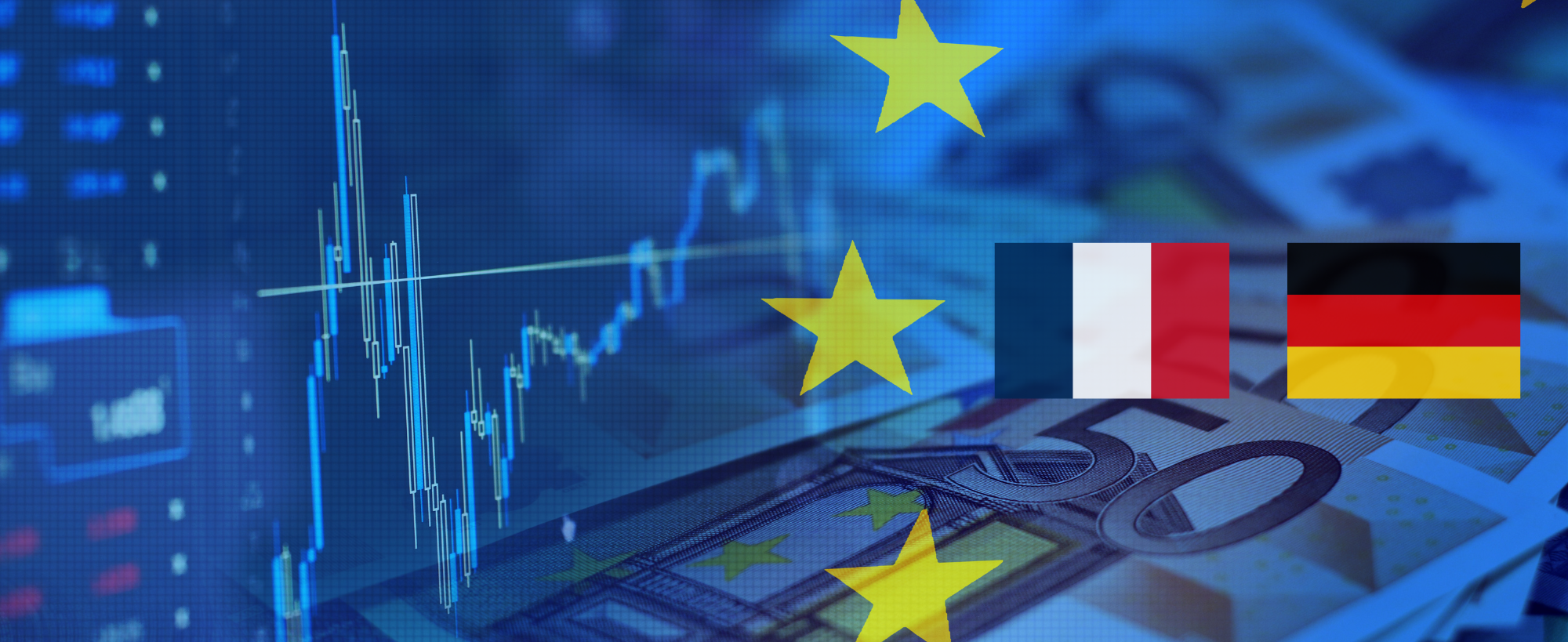Fiscal Policy in France and Germany: Insurmountable Differences?
The state of public finances in France and Germany is often compared. Germany is considered a model of rigor, through its ability to contain its deficits and generate surpluses, particularly between 2012 and 2019, thanks to the introduction into its constitution of a debt brake mechanism.

Conversely, France has a bad reputation, with a budget regularly in deficit since 1975. However, it was from the mid-2000s onwards that the budgetary trajectories of the two countries clearly diverged, which can be measured through the budget balance and the level of public debt.
However, in the context of multiple crises that Europe is experiencing since the euro zone crisis in 2010, until the Ukrainian war in 2022, including the Covid-19 pandemic, the consequences of the management of public debt translates differently in each country. The assessment should be more nuanced though with regard to the effects produced by the pursued political decisions:
On the German side, too little public investment is currently weighing on the quality of infrastructure, particularly in energy and transport, but also the operational level of the Bundeswehr. As a result, surpluses have amounted which were based on a growth model, highly exposed to international risks, and a reluctance to strengthen the coordination of economic policy at the European level.
As for France, its budgetary vulnerability has recently particularly accrued, marked by weak growth and a sharp increase in interest rates, after a long period of zero or even negative rates.
While the financing needs are considerable in both countries and in Europe as a whole, to complete the energy transition, relocate certain production and strengthen defense, what budgetary policy measures should Germany and France take? What are the possible points of convergence? Compromises are essential to ensure the reform of the Stability and Growth Pact and, beyond that, to ensure better governance of European economic policy.
- This note was written in partnership with the Jacques Delors Institute, a European think tank.
Dr. Andreas Eisl is a Research Fellow in European Economic Policy at the Jacques Delors Institute and an Associate Researcher at the Paris Institute for Policy Studies (Sciences Po).
This publication is also available in French and German (pdf):
FRENCH: Politique budgétaire en France et en Allemagne : des divergences insurmontables ?
GERMAN: „Unüberwindbare Divergenzen in der Haushaltspolitik Deutschlands und Frankreichs?“
Related centers and programs
Discover our other research centers and programsFind out more
Discover all our analyses
Securing critical raw material (CRM) value chains – a prerequisite for Europe’s technological resilience
At the heart of economic security, technological resilience is a backbone of the European Union’s (EU) competitiveness. The EU’s energy and digital transitions depend on critical raw materials (CRM).

Reconciling competitiveness and demographic change: a Franco-German imperative
France and Germany are facing parallel demographic shifts that could reshape the future of their economies and their social models. These shifts reflect broader European patterns but are magnified by the central role both nations play in EU governance and competitiveness.
Taking the Pulse: Does France's Political Crisis Weaken Europe's Geopolitical Hand?
While the EU tries to navigate a myriad international challenges, France is experiencing historic political disarray. What impact will instability in Paris have on Europe's geostrategic capacity?
Imaginary and Reality of the Franco-German border: a Laboratory for Europe of tomorrow
In Europe, the question of borders is a central issue. According to the European Parliament, border regions cover around 40% of the European Union (EU) territory, concentrate 30% of its population and produce nearly a third of its gross domestic product.








